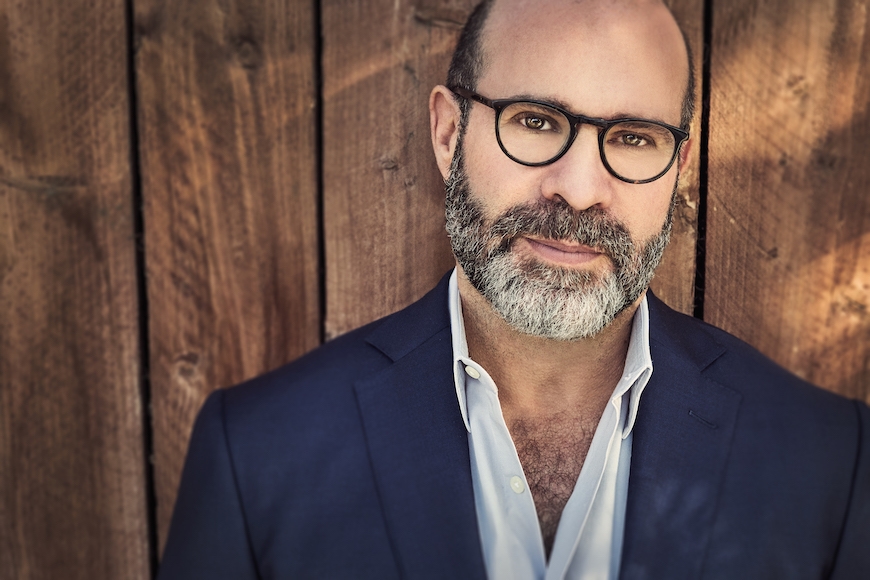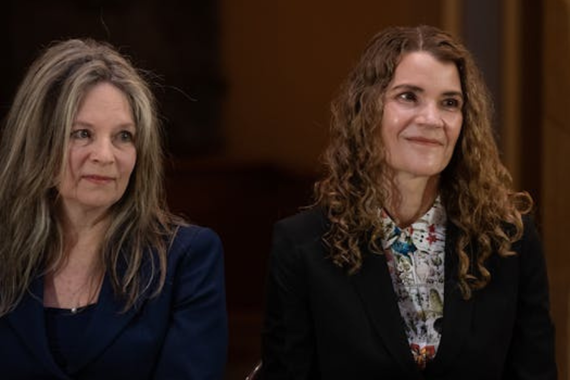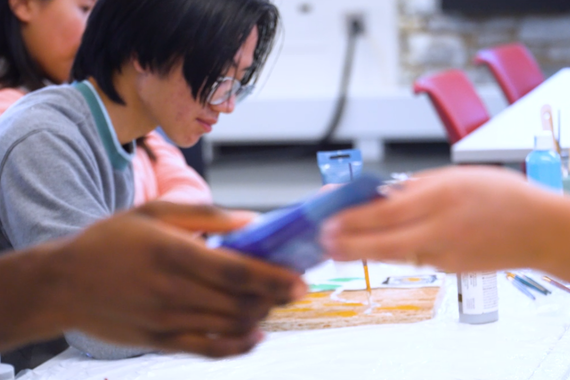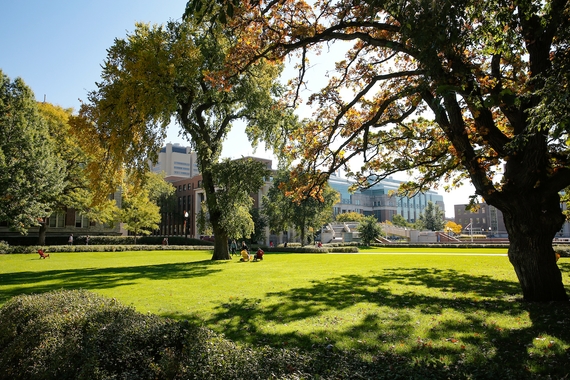Stories of a Warming Planet: Filmmaker and alum Scott Z. Burns launches Extrapolations on AppleTV+
English alum Scott Z. Burns wrote the script for the 2011 movie Contagion, which in envisioning a global pandemic in many ways foreshadowed events nine years later. This spring Burns launches a still more ambitious “What if?”: an AppleTV+ series imagining a near future world (2037-2070) increasingly damaged by climate change. “I looked at the science,” says the series showrunner over a Zoom call in early March, “and extrapolated what could happen if we keep going down this path. What are the stories that we’re likely to see show up outside of the weather report?”
Burns has described Extrapolations, an eight-episode story arc spanning 33 years, as a thriller, with humanity at once playing hero and villain in the race to save the planet. Working with four other executive producers, he says, “We had this idea at the beginning that you could take a genre and move it into the future: how does that genre look in a different world?”
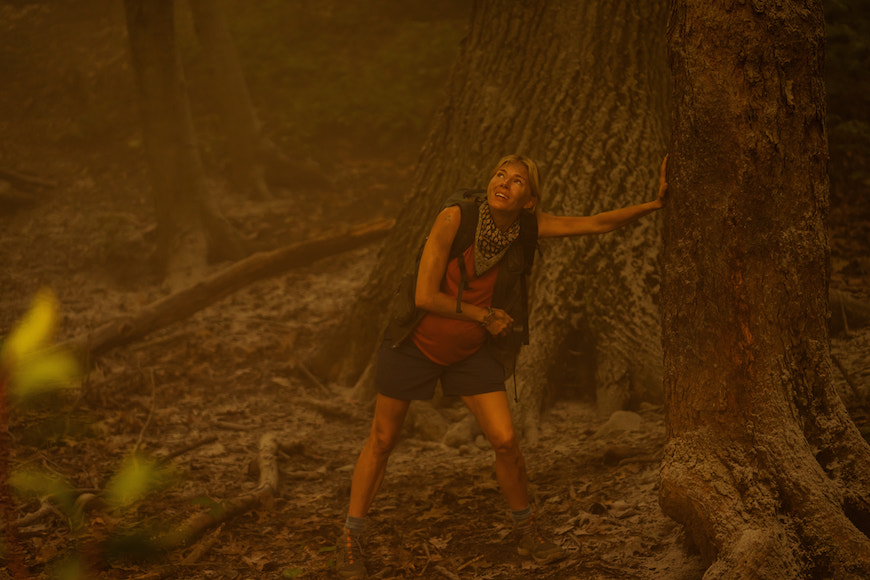
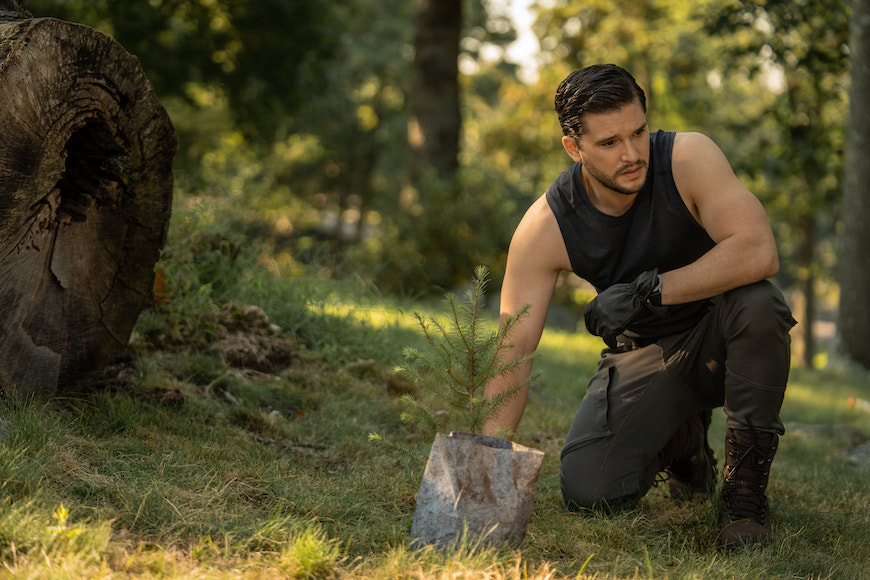
He is quick to point out that while climate change provides the setting and the stakes, the focus of the series’ interlinked stories is on the characters, played by a world-class cast (Meryl Streep, Kit Harington, Daveed Diggs, Edward Norton, Marion Cotillard, Tahar Rahim, Matthew Rhys, and Gemma Chan, among many others.) Characters fall in love, experience parent-child conflicts, lose family members, make friends, even as they must respond to a heating planet. “Considering what a climate change world does to these very basic human interactions was a wonderful experience,” says Burns.
But if engaging storytelling is the loadstar for the longtime screenwriter, producer, and director, in Extrapolations it serves a purpose beyond entertainment. “Ever since I was a producer on [the Al Gore climate change documentary] An Inconvenient Truth,” says Burns, “the obligation of that film and what I learned has stayed with me in a personal way—but also I wanted to find a professional expression of that. As I moved around in the world scientists would say to me, ‘You’re a storyteller, you have to tell stories that resonate with people.’ And this show is sort of the culmination of being haunted by that.”
The episodes look at areas of climate change feedback such as agriculture, tech development, public health, refugees, and species extinction, imagining the repercussions of human action and inaction. “Like Contagion, the show was researched to illuminate what is possible, and perhaps even probable, unless we find the courage to change course,” Burns has said.
Minnesota ties
Burns grew up in Golden Valley, graduating from the University summa cum laude with a BA in English. Burns then worked in advertising, where he was part of the team that created the “Got Milk?” campaign. Through another Minnesotan, he met actor and director Peter Berg, who got Burns started in screenwriting. Producing An Inconvenient Truth led to other connections: he shared writing credits on The Bourne Ultimatum and has collaborated as a writer and director with Steven Soderbergh.
But Minnesota is still a part of the creative landscape for Burns, who wrote or co-wrote six episodes of Extrapolations and directed three. “I find that the storytelling that I connect with the most is the storytelling that’s very personal,” he says. The third episode portrays a Miami rabbi (Diggs) struggling with a flooding synagogue and an angry teen questioning God’s intentions as climate refugees surge. “Episode Three was inspired by the Coen Brothers,” Burns reveals, “but I was raised in a Jewish family in Minnesota, and I had a lot of those questions that the young woman in that episode has.”
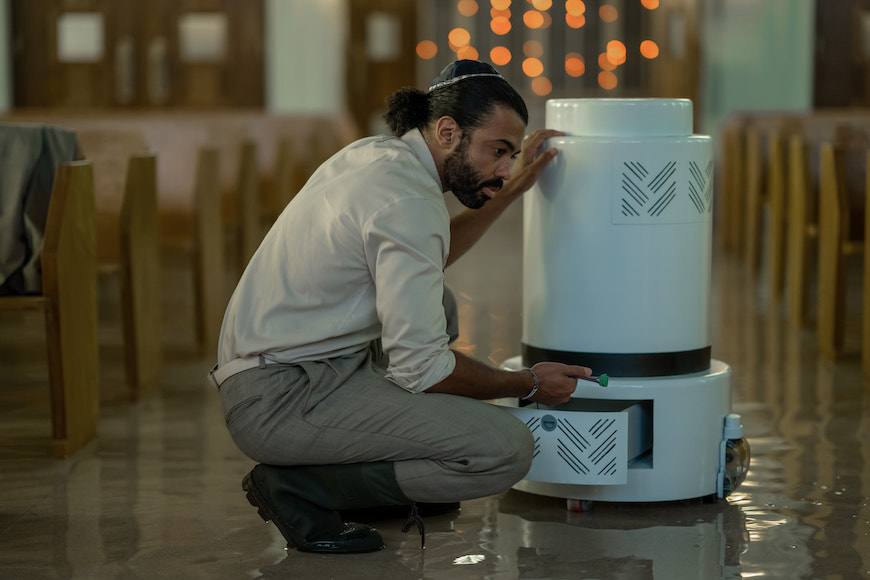
The series’ initial episode, which introduces prominent characters, draws from even closer to home. “Episode One I wrote at the beginning of the pandemic,” he says, “which is also when I was losing my father. And it very much became an episode about saying goodbye to something you love.”
At the University of Minnesota, Burns thought he’d be a humanities major, but the English credits kept piling up. He is grateful, he says, “to have people guide me through so many wonderful books and stories," showing him how literature "is a living experience" that connects to and even drives contemporary culture. For his summa thesis, Burns wrote a short story.
Importance of liberal arts
Working on Extrapolations with four other executive producers, five other directors (including Nicole Holofcener and Richie Mehta), nine writers, and scores of actors made collaboration essential. Luckily Burns finds it inspiring. He describes the “joy” of mapping out a season character arc with Kit Harington, who plays a tech boy wonder ambitious beyond the level of a Zuckerberg or Musk: “I don’t want people to be preachy and didactic in their performance. I want them to play a person, not a puppet of mine.”
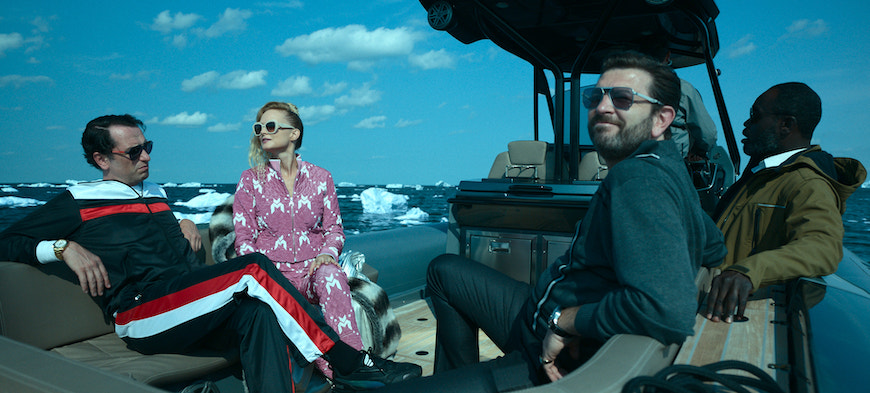
Burns also enjoyed collaborating with AppleTV+, citing especially “wonderful conversations” with their chief sustainability officer, Apple Vice President of Environment, Policy, and Social Initiatives Lisa Jackson, who administered the EPA for President Barack Obama. (While Extrapolations straightforwardly critiques some aspects of technology, Burns comments: “I did not get any notes from Apple saying, you know, I’m not being fair to tech.”) Of course, the ability to work and lead within a team is a College of Liberal Arts Core Competency, along with others equally important skills in this context: communication, applied problem solving, community engagement, and innovation.
Burns is a strong advocate for liberal arts studies. “The great thing about a liberal arts education is teaching you to be curious about the world,” he says. “The exercise of curiosity is something that you really only find in the humanities and in liberal arts. To some degree in science, but science has a different master to serve. I think when we become too much about turning education into trade school, and not enough about training minds to be curious, we’re running a great risk.”
As Extrapolations shows, a good story—and sometimes a new path forward—begins with “What if?”
How to watch
Extrapolations is available to stream on AppleTV+.
